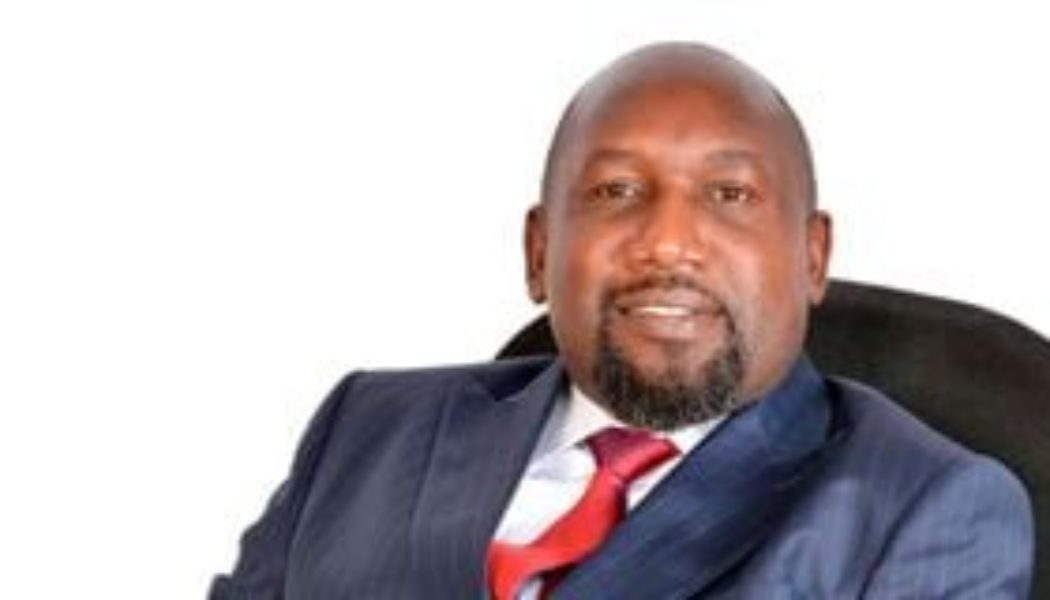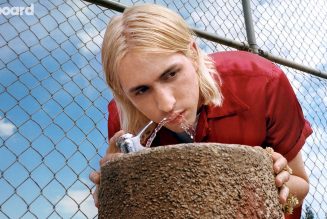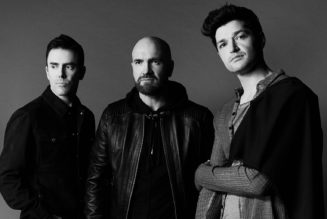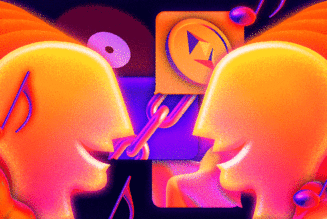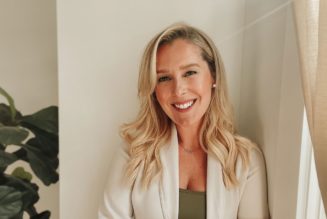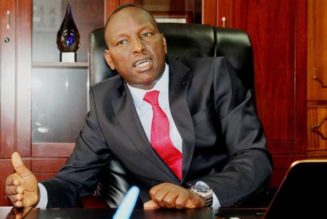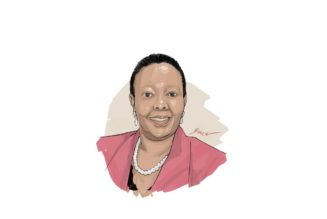Bothered. That’s how I feel when Dan Kwach, the MD of Africa Data Centres, puts his hands on the table. It’s not his hands I have a problem with, but his fingernails. They are long. Clean, yes, but long.
Why would a man keep long nails? “I had no nails in primary school. I would eat them up. It just became a habit, but when I took my IT course, I kept long fingernails that have stuck over the years. No manicure though,” he says.
Even without his fingernails, Kwach would have been noticeable. He is tall, and the archetypal CEO.
When you scratch through his patina of combustible self-confidence, you see a boy who was bullied throughout primary school. Now, despite his detractors, he has risen to upper management. When we meet at the Royal Nairobi Golf Club off Ngong Road, Nairobi, people queue up to say hello. Are they bothered by his long fingernails? We’ll never know.
What’s it like being you?
It is exciting. As a family man with two girls and a son, I do everything to have moments with them. I am the eldest son with an elder sister (three girls and three boys)—I’d like to think that I play the big brother role well, and sometimes I step into the parental role.
I often share my life lessons with my siblings. I am intentional about socialising. I believe that one’s net worth is his network and so I always tell friends and family that beyond what you are doing for everyone else, make sure you are socially connected.
You have five siblings. Didn’t that inspire you to start a larger family?
Haha! It’s not too late. I am at the 50 percent mark. But in hindsight, I appreciate how hard my parents worked to provide for us.
Did you grow up in lack?
Not really. I gained different skills from my parents. I spent time with my mother selling mutumba [used clothes] in Kisumu where she is still a businesswoman. My father was in academia. Both did everything possible to take us to good schools and provide good clothing, and housing. We were privileged. They also instilled values in us, which I still uphold today and pass on to my children. I make sure I take care of not only my nuclear but also my extended family.
Is that sense of “black tax” rooted in responsibility, guilt or expectation?
Blessed is the hand that giveth rather than the one that receives. It is my responsibility to support and walk with others. If I can do something, I shall do so.
What childhood memory stands out?
I wasn’t physically strong [chuckles]. I got into confrontations and got bullied by much stronger boys. I compensated for my physical weakness by doing better in academics and behaviourally, which ironically attracted more wrath from my bullies. They’d threaten “nitafunga shule na wewe” [I’ll close the school with you], which meant I’d get a proper beating on closing day. So, I would come to school expecting to get beat up. I have since made peace with most of them now.
Were you not tempted to avenge yourself?
No. Sure, it hurt but I thought that whatever oppression one was meting out I could make up for it in different ways. When someone undermines me, it gives me the impetus to not just deliver but exceed expectations.
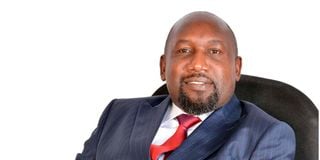
Dan Kwach, Africa Data Centres Managing Director.
Photo credit: Pool
Does that explain your MBA? Does a CEO have to have one?
It’s nice to have one but not a must-have. The knowledge you get from an MBA is important to your managerial function. You must have personal development at the centre of what you want to do to progress professionally.
When you strip away the CEO title, the father, the friend—what kind of man do you think you are?
Eddy, that is tough because I try and avoid making judgments on who I am. I let other people do that because I do not want to fall for the competency trap. I am a law-abiding citizen who loves fun. I like spending time with my social connections, not necessarily to get something from them. Relationships matter to me because people do business with people they like. In my free time, I have my round of golf…
Are you any good, at golf?
No. I am a social golfer. I am not competitive like my friends who want to beat me at it. For me it’s the hours I spend with them that I cherish.
What’s your insecurity as a man?
Presently, it’s whether my children will survive the current hostile environment. They have more access to information than we did. We grew up in a community setting, and I have had to accept I don’t have 100 percent certainty my children will live the way I want them to. I strive to be close to them, be their friend, and influence their behaviours.
Are you a better husband or a better father?
Everyone calls me “daddy” including my wife; therefore, I think I am a better father. It’s time to be a better husband now [chuckles].
Do you remember the first time you saw your wife?
Eddy, I approached my wife in an extremely competitive environment, between ‘hyenas’ and ‘sharks’. I had to bring my A-Game, haha! I married at 25, a year after graduating. We moved in together and just turned it into a marriage. We are peers and perhaps that is one of the reasons we have had many successes as well as challenges. We got married when I had no job, I was doing menial work but she believed in me.
At the risk of intrusion, you got married quite young. What kind of pillow talk do you have now?
Nothing’s changed. We talk about the everyday assessments of our commitment to each other and catch up with each other’s day. When you get married, you want your home to become your go-to place, somewhere you can vent.
Sometimes when you are in a relationship for a long time, you end up falling into the cliché of ‘roommate-ness’. How do you maintain the fire?
You cannot do it alone. You must both pull your weight and be committed to each other. What do you do so you don’t suffer the risk of a boring relationship? Be friends.
What did your last heartbreak teach you?
Haha! It taught me that I have to be committed to fixing and making sure my relationship with my wife stays put. Marriage counsellors, friends et al—regardless, if both of us cannot agree, then we won’t fix it.
What do you do just for you?
I retreat to be alone, especially in the village to think things through. I like driving because that is one of the ways I create time to be alone.
What do you like to splurge on?
Colognes. My son has taken after me, and sometimes I find him in my bedroom trying to wear them. Sometimes I tell him, “That one just use once in a while.” Haha! He lives in the moment. Sometimes when we get together as a family, I do not mind getting the best of whisky, a token of appreciation for those I respect and celebrate.
What music are you listening to now?
Rhumba. I blame that on my dad. My son has also influenced me, now I also listen to amapiano. I also love my reggae. I was a staunch patron of Tribeca; I remember DJ Bash was my longtime friend and I could miss a trip because Ghetto Radio was performing.
Were you as close to your dad as you are to your son?
I am closer to my son, perhaps because of the social setup we have now. He [dad] was hard on us but for a good reason.
What is one thing you wish people understood about you more?
I am not too strict. Some people might feel I am uptight, probably because I am strongly opinionated.
There is a Spanish saying, God says, “Take what you want and pay for it.” What have you taken and how are you paying?
At my workplace, certain opportunities arose and I took them, from a tech guy or an engineer to a salesperson. That is how I have had a view from all angles. It’s been useful ultimately.
Do you have a piece of advice that has guided you over the years?
Yes, character maketh a man.
Who do you know that I should know?
Our group chairman, Strive Masiyiwa. He owns Cassava Technologies and ADC is just one of his business arms. I challenge myself to achieve half of what he has done—believing in a cause and going after it.
